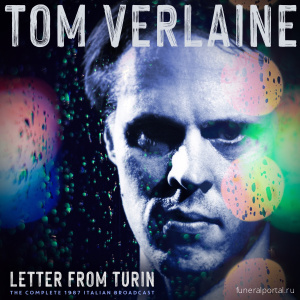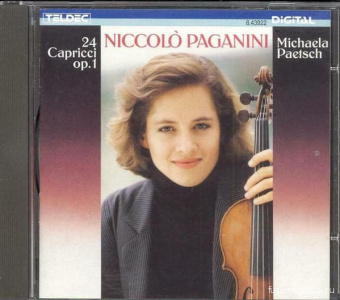By Brendan Kiley / The Seattle Times

Human composting activist Nina Schoen, a Seattle media tech executive, wants her body to "turn into something that can regenerate life." (Karen Ducey/Los Angeles Times/TNS)
Death isn't new. But this November, the Seattle-based funeral home Recompose expects to open for business, giving us a whole new way to deal with our earthly remains: natural organic reduction (NOR), more commonly known as "human composting."
For years, Recompose has been the only funeral home proposing to offer NOR, an alternative to traditional burial and cremation, but now it's got company -- competition.
Herland Forest, a natural-burial cemetery (no embalming, no caskets) in Klickitat County, received its NOR license from the state Funeral and Cemetery Board in July and is awaiting its first client. Return Home (formerly Adamah) plans to open its Auburn facility in the spring.
"We want to make a third means of disposition," Micah Truman, founder and CEO of Return Home, said of his company. "It will take a lot of work to be recognized that we're not cute, not a boutique, not 'fun,' not an alternative for Vice magazine to write up with a cute lede about people mulching themselves. This has to be seen as a viable alternative instead of a bunch of weirdos doing weird things."
The arrival of competitors is not an entirely unwelcome development to Recompose founder and CEO Katrina Spade. "I believe we desperately need change in the way we care for bodies, physically and emotionally," she said. "So there should be a lot of people out there doing this. Do I have to love them all? No. But it's not surprising to see competitors finally arrive."
Spade has led the way for NOR. In 2014, when she first publicly floated the idea of human composting as an ecologically superior alternative to traditional burial and cremation, many people thought the concept was bizarre and unrealistic.
First of all, it wasn't legal. Secondly, the science was only sorta-kinda there -- farmers have been using "mortality composting" as a way to deal with deceased livestock for decades, but nobody had studied whether humans would turn into safe, clean soil, nor how long it would take.
Then there was the ick factor. Considering NOR forces us to contemplate death and decay -- specifically, our bodies being placed into individual "vessels" where microbes, encouraged by starter material (wood chips, alfalfa, straw), will turn us into soil over a carefully calibrated six-week process. Could enough people get past that to make NOR a viable funerary option?
Fast forward six years: The law has been changed and the science has been done (one study at Washington State University used the remains of six terminally ill volunteers), both largely thanks to Spade's advocacy. (The entire study has not yet been published, but soil scientist Lynne Carpenter-Boggs -- who led the research -- said she plans to submit it to a journal this fall.)
Recompose has raised $6.7 million in investment capital and outfitted a facility in Kent -- and, Spade says, roughly 300 people have signed up for Precompose, the Recompose prepayment plan.
But perhaps the strongest vote of confidence in Spade's idea comes in the form of her new competitors.
"I'm a finance guy, not a funeral guy," Truman said. "But I want to do something both well and good -- to help people make sure the last thing they do on this planet is not poison it."
Truman attended Lakeside School in Seattle and spent 20 years in China where he worked in online advertising and wedding-specific media before starting AsiaWise -- a company that raises capital for U.S. real estate projects from Chinese investors, who are then eligible to apply for fast-track EB-5 visas.
In 2016, two years after returning to the U.S., Truman heard Spade pitch NOR at a meeting of Seattle Venture Partners, a "venture philanthropy" group that infuses philanthropic work with a venture-capital ethos. (At the time, Spade was pursuing NOR through a nonprofit called the Urban Death Project which became the company Recompose in 2017.)
"Watching Katrina's presentation, I was incredibly taken," Truman said. "We met a few times and talked about the business side of things, but we had a difference in vision."
And what is Truman's vision? Growth.
When Recompose opens in November, it will have 10 vessels. (Spade had originally planned to open a Sodo facility with 32 vessels but scaled back after COVID clobbered the economy and estimates for the buildout got too expensive.) Return Home expects to open in April with 65 vessels, with hopes to expand throughout the state, then possibly California and Colorado -- both have already proposed NOR legislation, following Washington's lead.
"I think Katrina and I are going to serve different markets," Truman said. "Katrina very much wants to serve, to revisualize how death-care is done: beautiful space, amazing aura, empathetic people who will take you by the hand and run you through it. When I think about my company, all I need is scientists and engineers -- we're a technology play. That's all we are."
Return Home has also contracted scientists to fine-tune its own NOR process using pigs for the research. They are not going to attempt a study involving human volunteers.
Truman also points to a difference in price: $3,800 for a basic NOR at Return Home, plus a transportation fee to move the body from its place of death. (Truman estimates those fees will top out at $300-$400 if moving a body from Eastern Washington.) Like many crematoriums, Return Home will take calls directly from customers, but plans to work through funeral homes which will charge their own fees, from transporting the remains to filing paperwork.
Recompose, on the other hand, is its own funeral home and charges an all-inclusive $5,500, which covers picking up the body, the service (now virtual) and the NOR process itself.
At the nonprofit Herland Forest Natural Burial Cemetery, NOR will be even less expensive, at $3,000 -- but it's not a funeral home either, and so far has built only one NOR vessel.
"As soon as we get a client for the one, we can take that money and build another," said Walt Patrick, one of the residents at Herland Forest, which is managed by Windward -- an intentional community that not only runs the cemetery, but stewards 126 acres of permaculture forest in Klickitat County.
Patrick, whose involvement with intentional communities dates back to 1973, said Herland Forest began its cemetery partly to serve its own residents.
"We put a lot of heart and love into this land and we don't want to leave," he said. "Our goal is to join with our land until death brings us together forever."
Patrick first heard about NOR last year, when Gov. Jay Inslee signed legislation making Washington the first state to approve composting as a means of human disposition.
Patrick and Truman are quick to point to their less expensive pricing, but Nora Menkin, executive director of the People's Memorial Association (a nonprofit that runs a co-op funeral home and serves as a consumer-advocacy group and watchdog for the death-care industry) says the three companies are not charging different prices for the same service.
"It's not an apples-to-apples comparison," she said. "The Recompose price also includes the funeral home costs, from the place of death through the process. Families are welcome to be their own legal funeral directors -- but not a lot of families will want to do that."
Regardless, NOR is almost here.
Truman said that as he talked to funeral directors around the state, feeling out how receptive they might be to recommending NOR as an option for grieving families, he got mixed signals. A few of the younger funeral directors, he said, seemed excited about a new means of disposition -- but older funeral directors, especially those running a multigenerational family business, weren't interested.
"Those types would say something like: 'Son you're just another finance guy, you don't know the first thing about this, my family has helped three generations in this town, carry on about your business,'" Truman said. When he went to national conferences and talked to funeral directors from Iowa and Arkansas, he said, they acted like he was proposing graveside services on Neptune.
"I think everyone thinks it's a nothingburger," Truman said. "I think this is very much a somethingburger. And we're going to find out in very short order. In a way, this is the biggest bet I've ever made."
(c)2020 The Seattle Times
Visit The Seattle Times at www.seattletimes.com
Distributed by Tribune Content Agency, LLC.

Recompose — Resources https://recompose.life/resources/
Composting Humans https://www.fpiw.org/blog/2019/01/23/composting-humans/








